How Much Water Do You Need Each Day? Debunking Common Hydration Myths
Did you know more than half of your body is made of water? Though the percentage changes slightly based on your age, gender, and how hydrated you are, it’s no wonder that water is crucial for our health and our survival. But how much water do you need each day? The magic number seems to be 8 cups, though that’s not always true.
You’d think the topic of water and hydration would be an easy one. Yet, there are so many myths surrounding it. In this article, we aim to debunk some of the most common ones so that you can be happy, healthy, and well-hydrated all the time.
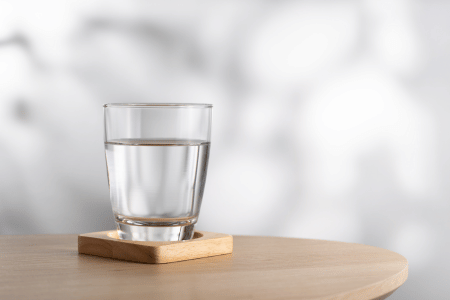
Why all the talk about hydration?
If you think staying hydrated is about not getting thirsty, think again. Around 75% of a baby’s body weight is water. When we grow, this percentage lowers slightly. The average number for adults is 60%, which can decline to about 45% for older adults.
Proper hydration is crucial to so many functions in your body. For instance, one study showed that a little over 1% fluid loss after exercise resulted in altered mood, trouble concentrating, and headaches.
Another study conducted on older men showed that a 1% fluid loss had side effects such as memory issues, reduced endurance, and muscle strength. None of the men had any health issues prior to the study.
Staying hydrated (or not) may also affect your weight. Water helps reduce cravings so that you don’t overeat or snack as often. Plus, it helps you eliminate toxins from your body through urine.
Long story short, hydration impacts your weight, mood, and energy levels. It also helps all the essential organs in your body function their best.
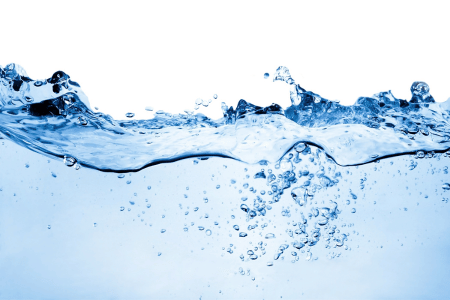
How much water do you need each day? Is it, or is it not, 8 cups?
The number 1 advice you’ll see around the internet and hear from your friends is to drink 8 cups of water daily. That’s the equivalent of half a gallon or 2 liters per day. But what does science tell us?
According to the U.S. National Academies of Sciences, Engineering, and Medicine, women need about 2.7 liters (11.5 cups) of liquids daily, whereas men need 3.7 liters (15.5 cups).
Before you freak out, we need to clarify something. “Liquids” doesn’t refer only to water. Tea, juices, and even food count. You get around 20% of your liquids from foods! And if you eat a lot of fruits and vegetables, especially things like cucumbers, watermelons, or oranges, that percentage might be higher.
There are some more variables to consider.
- Pregnant or breastfeeding women need more water than usual. Yes, that might mean you’ll be running to the bathroom all day, but your kidneys and entire body will thank you.
- Your liquid needs vary with the season. In summer, you sweat a lot more, so increasing your fluid intake is normal.
- Those who are very active and do moderate to vigorous workouts a few times a week need more liquids, especially on the days when they work out. But the gym isn’t the only type of activity that counts. For example, someone working in construction might need a bit more fluids than someone sitting in front of a computer all day.
- Similarly to the seasons, the area where you live could also dictate your water needs. If you live in a dry area with normal to high temperatures, you’ll get dehydrated faster than someone living in a humid environment.
- Your health may also come into play. If your body is fighting an infection and you have a fever, you need to drink a lot of water! Your body is losing fluids rapidly and will lose more when your fever breaks, so stay hydrated.
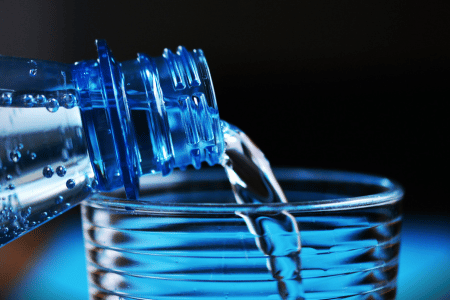
Can you be too hydrated? Yes, you can.
Eight cups of water is an average number that will benefit many people. Some days you may need more, and others you may need less. But you can also drink too much water! That can lead to hyponatremia, an electrolyte abnormality.
The sodium in your body becomes diluted, and your cells can start swelling. This can cause health issues, some of which can be life-threatening.
Luckily, hyponatremia doesn’t happen frequently, and you need to drink a lot or have other health issues. Certain medications and recreational drugs might affect how your kidneys process liquids, leading to hyponatremia.
Certain conditions, like heart disease and liver or kidney issues, may also predispose you to it. Of course, drinking too much water (well over 2-3 liters) in a short period of time can be a risk, regardless of other factors.
Caffeine dehydrates you. Or does it?
To caffeinate or not to caffeinate? One of the longest-standing myths surrounding coffee is that it dehydrates. This theory is based on a study from 1928 that looked at only 3 people. I think we can all agree that it’s far too little to draw a conclusion about anything.
So what’s the claim behind this theory? They say caffeine is a mild diuretic and can, therefore, dehydrate you.
The claim is not entirely false. A more recent study from 2014 looked at 50 men and noticed that caffeine in large quantities was a mild diuretic if the person wasn’t used to drinking so much coffee. In small to moderate amounts, the changes weren’t significant.
Why, then, do some feel very thirsty after drinking coffee? It might indicate that you’re part of the population for whom coffee has a mild diuretic effect.
But there’s another more plausible reason. Caffeine is a stimulant, and it can make your mouth feel dry. That will make you thirsty, even if you’re not dehydrated.
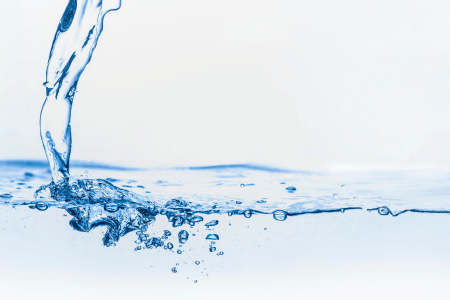
Can you tell how dehydrated you are by the color of your pee? Maybe. Not always.
The idea that you can see how hydrated you are by the color of your pee is not new, and many medical professionals use it. The theory is the lighter the urine, the more hydrated you are.
Why is that wrong? Because several things can make your urine darker that have nothing to do with hydration.
Vitamins, especially B vitamins, are known for making your pee bright yellow. Certain antibiotics and other medications can have the same effects. Eating beets, on the other hand, could make your pee reddish.
Finally, there’s the less-than-ideal reason—bacteria. If you have an infection, even a UTI, your urine might change color.
Thirst = dehydration? Not really.
If you’re convinced that thirst and dehydration go hand in hand, you’re not alone. Earlier, we had the caffeine example. Because it’s a stimulant, it can make your mouth feel dry, making you thirsty. But that doesn’t mean you’re dehydrated.
Caffeine is not the only thing that can have this effect. Eating something spicy, for instance, might also make you feel thirsty.
Then there are certain medications that can have the same effect. Finally, there’s diabetes. One of its well-known symptoms is an unquenchable thirst. No matter how much water you drink, the thirst is still there. The symptom has nothing to do with dehydration and everything to do with blood sugar levels.
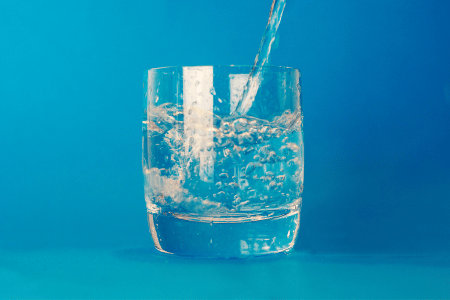
Are sports drinks a must after workouts? Not always.
A few years ago, they'd tell you to drink water if you did a serious workout. Fast forward to now, and sports drinks are everywhere. And so are the people recommending them.
The real answer? It depends on the sports drink and you. Many of these drinks are high in sugar and artificial flavors, aka not the healthiest of cocktails. Of course, if you’ve done a strenuous workout, they feel like the best thing ever: they hydrate you and give your blood sugar a well-deserved boost.
The problem is that they have no nutritional value, and the sugar and artificial ingredients might make you thirsty.
Water is your best choice here. If you really need a boost, you can try using electrolytes. These are great, especially if you work out in the heat and sweat a lot more than you usually would.
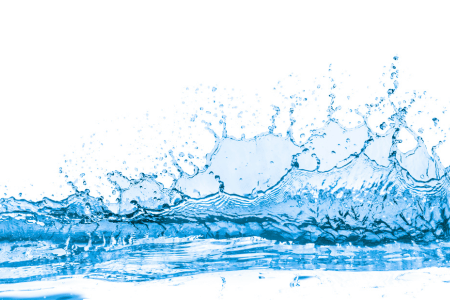
The bottom line
Staying hydrated is a must. But that doesn’t mean you need to drink water non-stop. As for the 8 cups per day, that might be an average that works for most, but there are so many other factors to consider. Plus, your daily fluid intake is not only the water you drink. Tea, juices, and even some foods count.
Like many other things, hydration is all about balance. Too little or too much will affect your body, so try to find your sweet spot.
We’d love to hear from you! Did we help bust some myths for you? Are you relieved to find out, for instance, that coffee isn’t as bad as you thought? What’s your favorite way to stay hydrated? Join the conversation on our Facebook page.
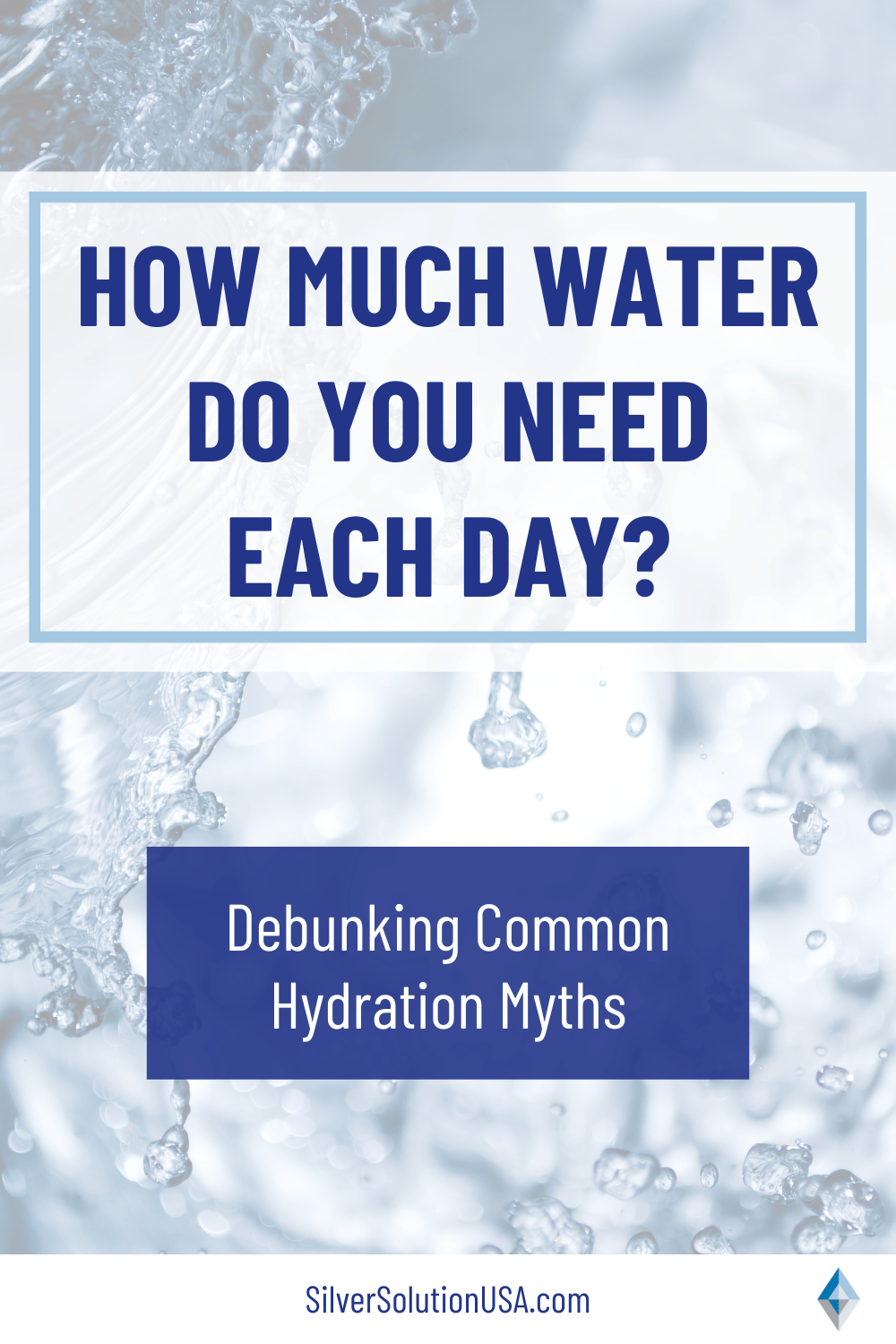
Health/Medical Disclaimer
This blog post does not provide health or medical advice. This blog post is for informational and educational purposes only and is not a substitute for professional health or medical advice. Before taking any actions based upon such information, we encourage you to consult with the appropriate medical and healthcare professionals. We do not provide any kind of health or medical advice. The use or reliance of any information contained on this blog is solely at your own risk.
Sources
https://nap.nationalacademies.org/read/10925/chapter/6#76
https://pubmed.ncbi.nlm.nih.gov/22190027/
https://pubmed.ncbi.nlm.nih.gov/19661958/
https://pubmed.ncbi.nlm.nih.gov/24416202/
Recent Posts
-
Are sunscreen ingredients harmful?
Sunny days can bring a lot of fun. Going out for a swim, spending time in nature, or relaxing on the …18th Mar 2024 -
The Veggie Debate: Does Cooking Vegetables Destroy Nutrients and the Best Ways to Cook Them
Vegetables are one of the healthiest foods you can choose. Some people downright hate them, while so …4th Mar 2024 -
Best Foods for COVID Recovery and Prevention
A few years ago, a new virus took the world by surprise. COVID-19 may look like the flu on the surfa …19th Feb 2024




